
MySQL Data Audit Trail
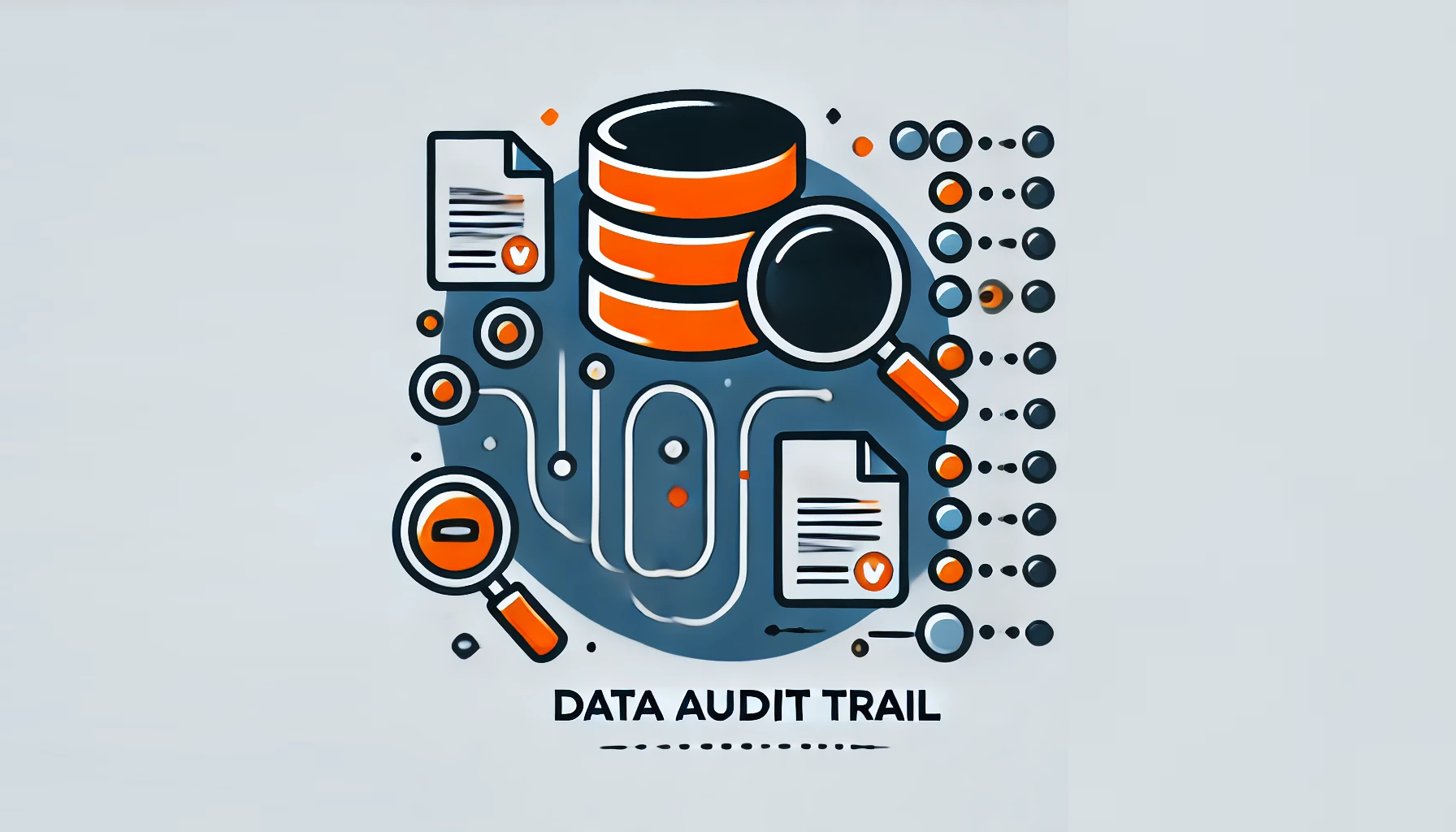
Monitoring database activities is vital for maintaining data integrity and adhering to regulatory standards. A MySQL Data Audit Trail helps organizations track every action performed within a database, from user logins to data modifications. By keeping an audit trail, businesses can spot unauthorized access.
In this article, we will explore how to create a data audit trail in MySQL using native tools and third-party solutions such as DataSunrise. Understanding the differences between these options will help you choose the best method for your needs.
What is a Data Audit Trail?
A data audit trail is a record of all actions performed within a database, tracking events such as data entry, updates, deletions, and access attempts.
The data audit trail is more specific to data-related activities within a database. It focuses on tracking changes to the data itself.
A data audit trail focuses on tracking and logging events related to the data in the database.
For businesses handling sensitive data, regulatory frameworks like GDPR and HIPAA require audit trails to ensure accountability and transparency. A MySQL Data Audit Trail keeps a record of important actions in the database to meet such requirements
Creating a Data Audit Trail in MySQL
Using MySQL’s Native Tools
MySQL provides several built-in tools to create and manage a data audit trail. These tools can help administrators monitor the database without relying on external software. The most popular method for auditing is through the MySQL Enterprise Audit plugin.
Setting Up the MySQL Enterprise Audit Plugin
The MySQL Enterprise Audit plugin helps administrators set up a record of database activities. Here’s how to enable it:
- Verify Installation: Check whether the plugin is installed by running the following command:
SHOW PLUGINS;
- Install and Enable the Plugin: If the plugin isn’t installed, add it using this command:
INSTALL PLUGIN audit_log SONAME 'audit_log.so';
- Configure the Audit Plugin: Use the MySQL configuration file to specify which events should be logged. This can include login attempts, failed queries, and data updates.
- Review Audit Logs: The plugin generates log files that record each activity based on the parameters set during configuration. You can review and analyze these logs for any unusual activity.
The MySQL Enterprise Audit plugin meets many audit needs and is especially useful in places that must follow strict rules.
Using Triggers to Create an Audit Trail
If you’re looking for an alternative or a complementary method to the built-in plugin, you can use MySQL triggers to log changes. Triggers allow you to record specific actions, such as updates or deletions, in a separate audit table.
Example of Using Triggers
- Create an Audit Table: Begin by creating a table to store audit logs. For example:
CREATE TABLE audit_log ( id INT AUTO_INCREMENT PRIMARY KEY, action VARCHAR(255), old_value TEXT, new_value TEXT, action_time TIMESTAMP DEFAULT CURRENT_TIMESTAMP );
- Set Up a Trigger: Create a trigger to capture updates on a specific table. For instance:
CREATE TRIGGER before_update_trigger
BEFORE UPDATE ON your_table
FOR EACH ROW
BEGIN
INSERT INTO audit_log (action, old_value, new_value)
VALUES ('UPDATE', OLD.column_name, NEW.column_name);
END;This method records actions in the audit_log table, helping administrators monitor changes more closely.
Limitations of Native Tools
While MySQL’s native tools offer good auditing capabilities, they may not be sufficient for all environments. In high-performance or regulated industries, administrators may need advanced features. These include real-time monitoring, alerting, and detailed reporting. For these cases, third-party solutions like DataSunrise offer additional functionality.
Enhancing Data Audit Trail with DataSunrise
DataSunrise provides advanced features that go beyond what is available through native MySQL tools. It makes it easier to set up and maintain a MySQL Data Audit Trail.
It also adds useful features including data masking, advanced reporting, and real-time alerts. This makes it ideal for organizations that require more comprehensive auditing and monitoring.
Setting Up Data Audit Trail in MySQL with DataSunrise
The process of setting up a data audit trail in MySQL using DataSunrise is straightforward. The tool integrates seamlessly with your existing database infrastructure, providing a user-friendly interface to configure your audit trail.
After you connect DataSunrise to your MySQL instance, you can set up audit rules. These rules will log specific events. For example, they can track SELECT queries on sensitive tables or any changes to user permissions.
Suppose you want to log every instance of users accessing personal data. Using DataSunrise, you can create a custom audit rule that tracks every SELECT query executed on tables containing sensitive information. DataSunrise will log each access, enabling you to review these logs later or receive alerts in real-time.
The example of configuration can be as below.
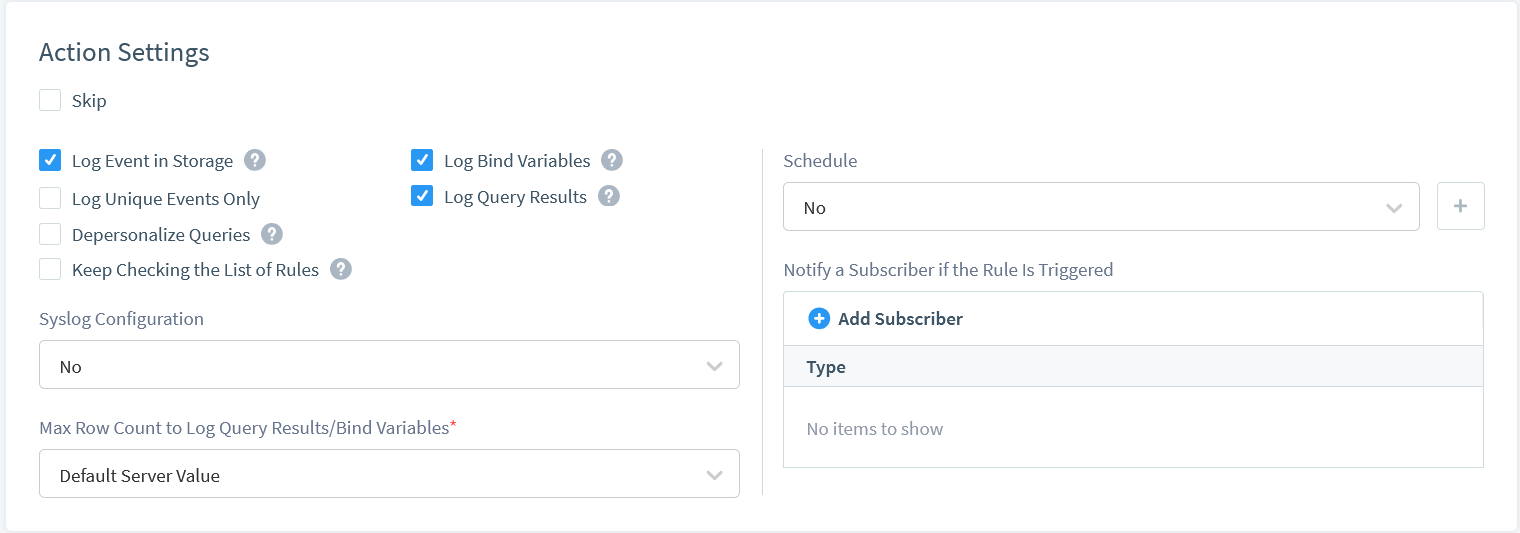
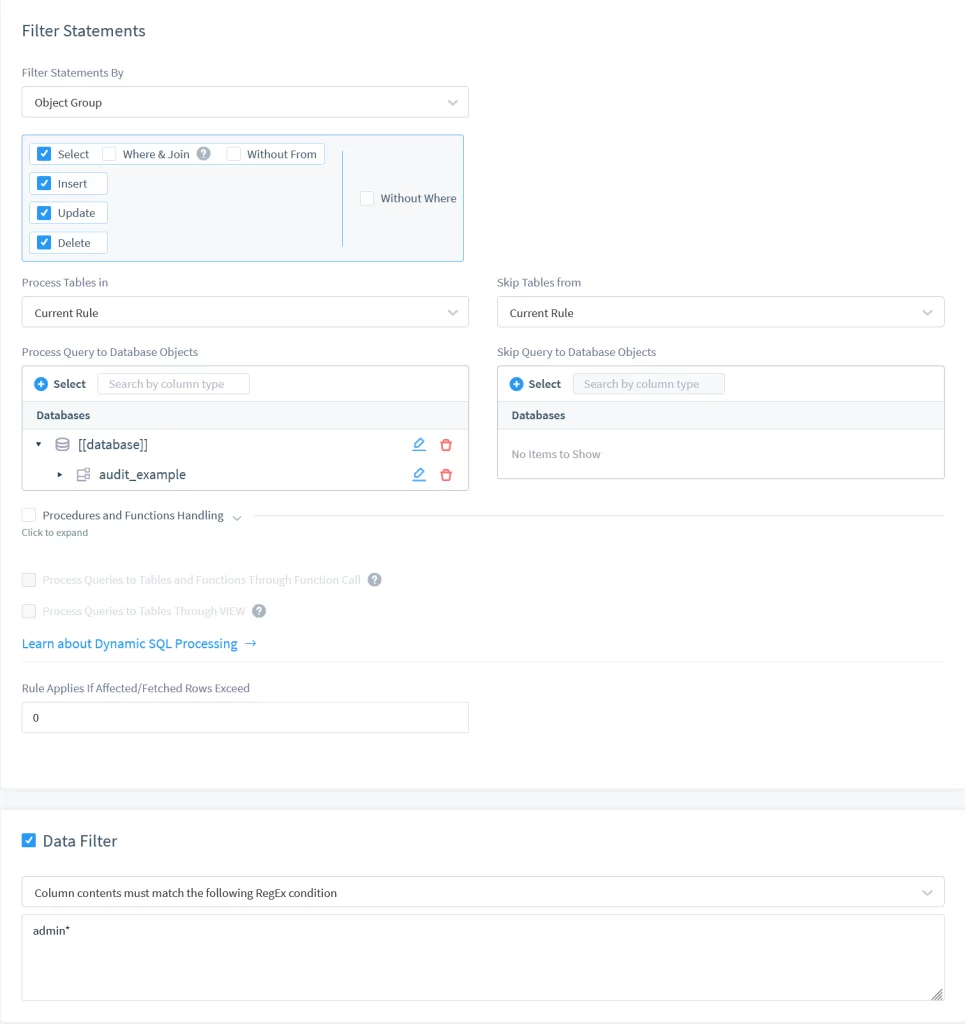
By selecting Log Query Results option, you can check what data was changed/selected/etc.
Connect to the database via proxy.
Perform a query to check the rule:
SELECT id, login, pass FROM audit_example.audit_example where login = 'admin';
What Does the Data Audit Trail Look Like in DataSunrise?
DataSunrise presents the audit trail in an easy-to-navigate dashboard. The system displays the logs with clear details about each action, such as the user involved, the type of action performed, and the timestamp.

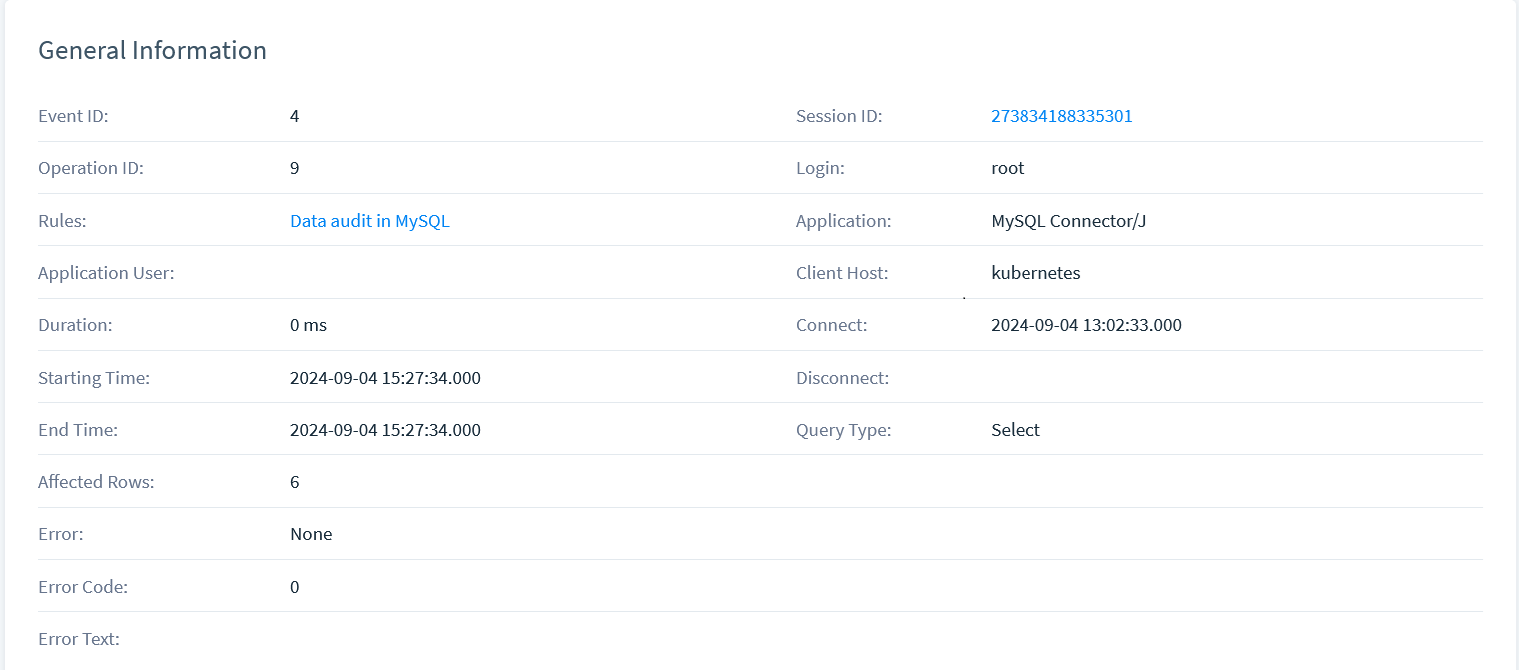
Saved query would look like this:

As we selected saving query results, it is saved, too:
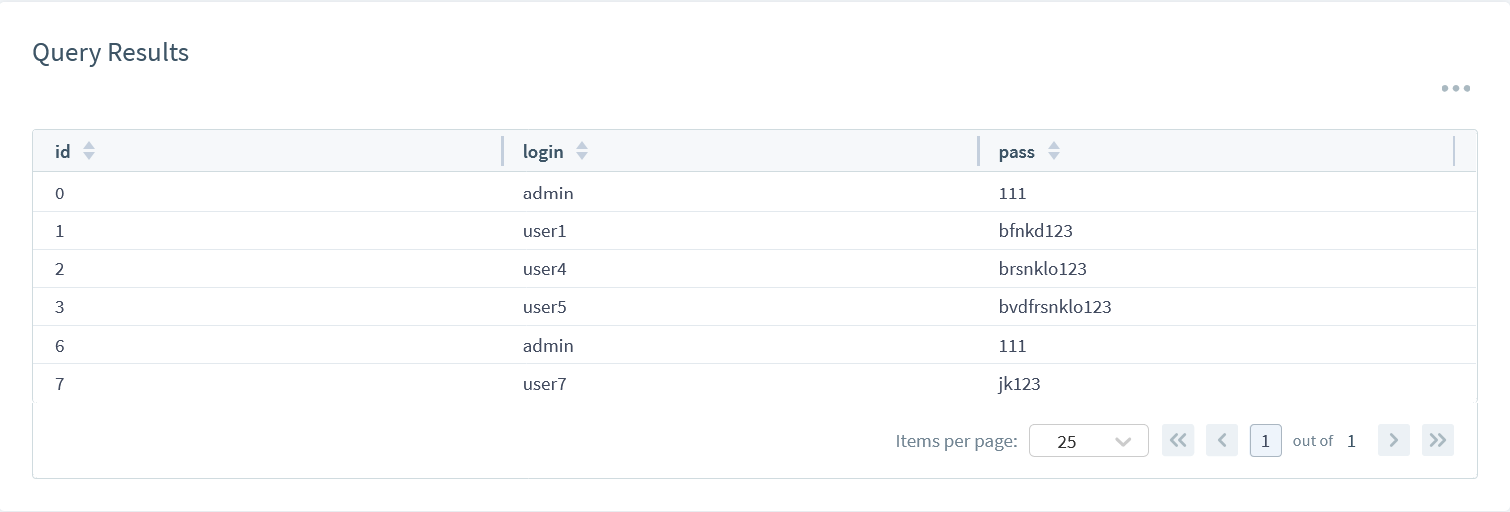
Conclusion
A MySQL Data Audit Trail is essential for any organization looking to protect its data and ensure compliance with regulatory standards. Using MySQL’s tools or DataSunrise for auditing helps you keep a clear record of database activities. This ensures you have the transparency and control necessary to manage your database effectively.
DataSunrise is a comprehensive tool for database security, offering not just auditing but also data masking, real-time monitoring, and data discovery features. To learn more about how DataSunrise can improve your MySQL Data Audit Trail, visit our website and request an online demo.
